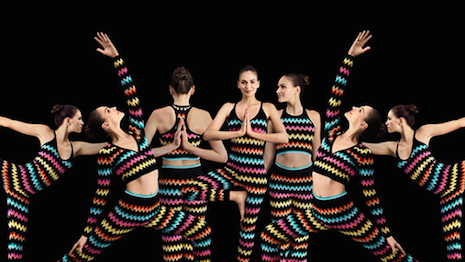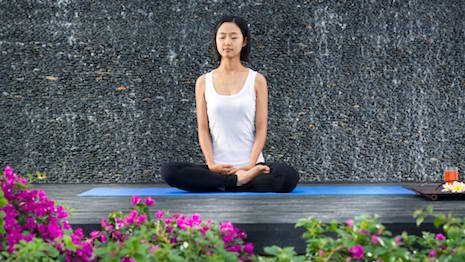- About
- Subscribe Now
- New York,
May 5, 2017

 Image courtesy of Mandarin Oriental Hotel Group
Image courtesy of Mandarin Oriental Hotel Group
NEW YORK – Although attention is beginning to shift from Gen Y, more commonly referred to as millennials, toward younger Gen Z consumers, the idealism of the former demographic has redefined what luxury means.
During “The Luxury Shoppers of Tomorrow” keynote at Luxury Roundtable: Engaging Gens X, Y & Z on May 3, a senior executive from Cassandra compared the different mindsets of the Gen Y and Gen Z demographics. Although close in age, Gen Y consumers grew up drastically differently than their Gen Z counterparts, which has left a lasting impact on how they approach luxury goods and services.
"The ability of these generations [Y and Z] to shape what’s going to happen in your industries, it’s going to carve the path of where your company needs to go, regardless of who you are targeting" said Alina Diaz, senior vice president of Cassandra.
"This is a very important breakthrough right now, to understand that it is not about how you can grow, but think about all of the money you are losing for not tapping into these trends today," she said.
Luxury Daily produced Luxury Roundtable: Engaging Gens X, Y & Z on May 3.
The wellness generation
Due to experiences, such as 9/11, the adoption of social media and the financial crisis, paired with an idealistic parenting style, Gen Y consumers see the world very differently than the Gen Z demographic.
Ms. Diaz explained that the Gen Y consumer is a 75 million-strong consumer base with an annual spend of about $200 billion.
But, even with the available spend, Gen Y is not investing in real estate or the stock markets. Instead, Gen Y are “WELLth investors” who would rather spend their income on personal and societal wellness.
Cassandra’s research found that 73 percent of Gen Y would rather be healthy than wealthy, and 68 percent would rather splurge on healthy eating than junk food.
As a result, Gen Y would rather spend money on self care, fitness and experiential travel such as voluntourism, which in turn has fueled the wellness economy.
For this demographic, wellness is more a status symbol than ever before and the trend is reflected on how Gen Y presents on social media. On Instagram, for instance, it is better to show off how healthy one is by sharing the morning’s green juice, not the most-recent shopping haul.
Missoni activewear capsule for MyTheresa
Wellness is on a similar growth trajectory to the luxury industry. According to Euromonitor, both saw low single digit growth from 2011 to 2016, but through 2020, luxury goods are projected to rise 16 percent to $450 billion while health-focused spending is expected to increase by 17 percent, reaching $833 billion (see story).
During the Cassandra keynote, Ms. Diaz stressed the importance of luxury promoting wellness in branded efforts, whether it be for the consumer’s direct benefit or for societal welfare. For this group, return on investment is key.
Essentially, Ms. Diaz says brands do not need to throw the next Burning Man festival, but they do need to be there to succeed with the Gen Y consumer.
The travel and hospitality industry has excelled at designing initiatives that play into Gen Y’s penchant for mindful luxury by placing experience and a “promise of a better you” first and foremost to amenities.
Luxury fashion, for instance, can learn from hospitality efforts. Cassandra found that 65 percent of Gen Y consumers want to wear a socially conscious brand more than apparel from a traditional luxury house.
All for the likes
Comparatively, Gen Z consumers were raised by realistic Gen Xers and have a more practical view of the world due to the experiences of their parents.
Also, due to social and technological advances, the true digital-native demographic grew up faster and was educated in world happenings sooner than past generations due to unparalleled access to the world.
As digital-natives, shareability is vital for Gen Z consumers, who tend to think in terms of how an outfit looks on Instagram rather than how it appears in a mirror. Daily, members of this consumer group are stylists, curators and photographers rolled into one.
For luxury, brands should consider how to create share-worthy products and experiences to cull the attention of Gen Zs. One such method is to create limited-edition products, which 30 percent of Gen Z feel defines a luxury good.
Streetwear label Supreme, for example, often releases limited-edition products that result in long lines of Gen Zs vying for the chance to say they were of the few to buy. Luxury has already begun to tap into Gen Zs’ fervor for the brand through a co-branded menswear collection by Louis Vuitton (see story).
Louis Vuitton x Supreme
While limited-edition is of interest, Gen Z commands luxury to be inclusive, rather than retaining the exclusivity of the past. Due to day-to-day shareability on social media, Gen Z want to share luxury with friends.
“Before luxury was a separation of ‘I have this, and you can’t,’" Cassandra's Ms. Diaz said. "For this generation, it’s more inclusive.
"In terms of the digital world for Gen Zs, that’s how they are experiencing brands," she said. "That’s where they form their first concept of what a brand stands for or not, so not being in the digital space is a big missed opportunity if you want their attention in the future."
Share your thoughts. Click here